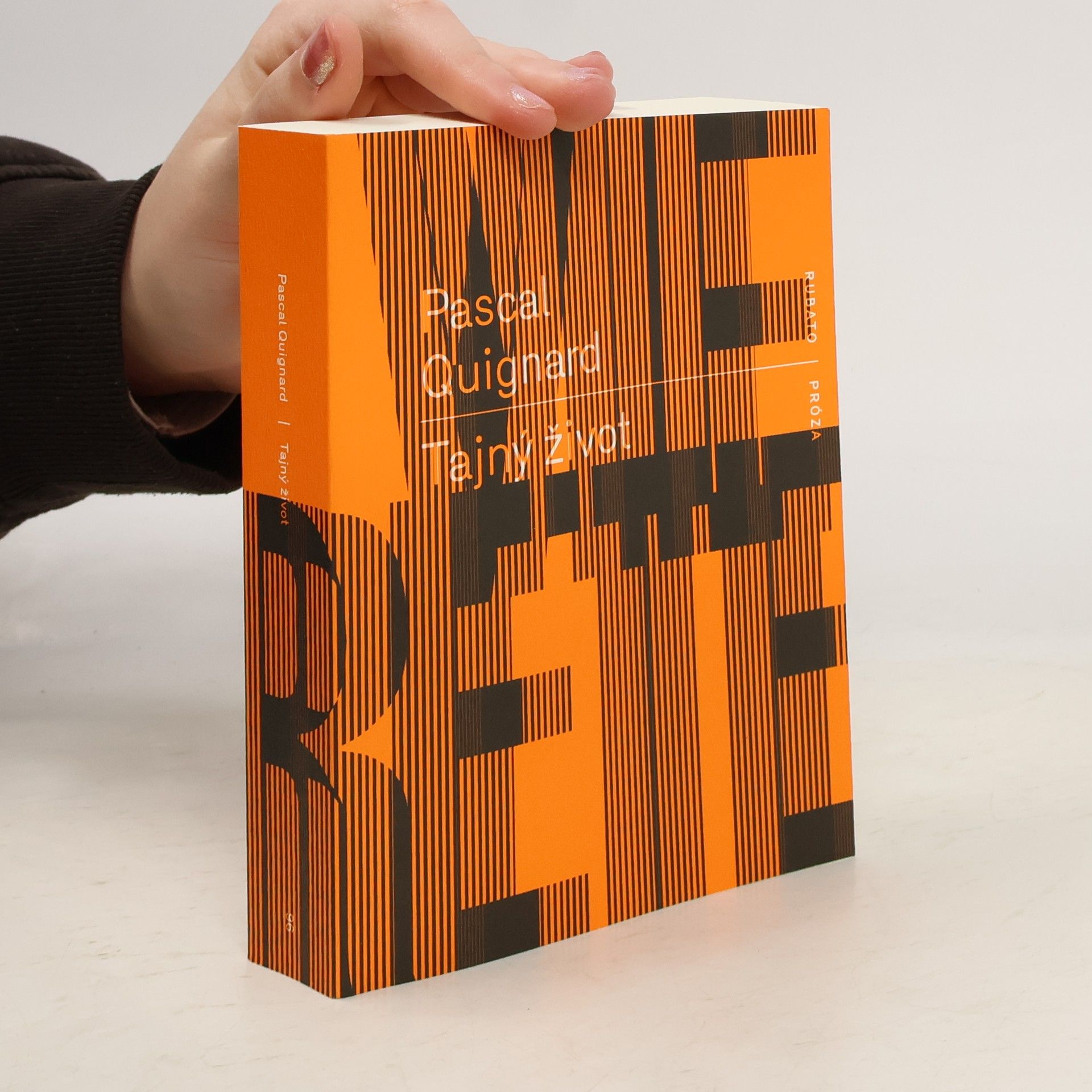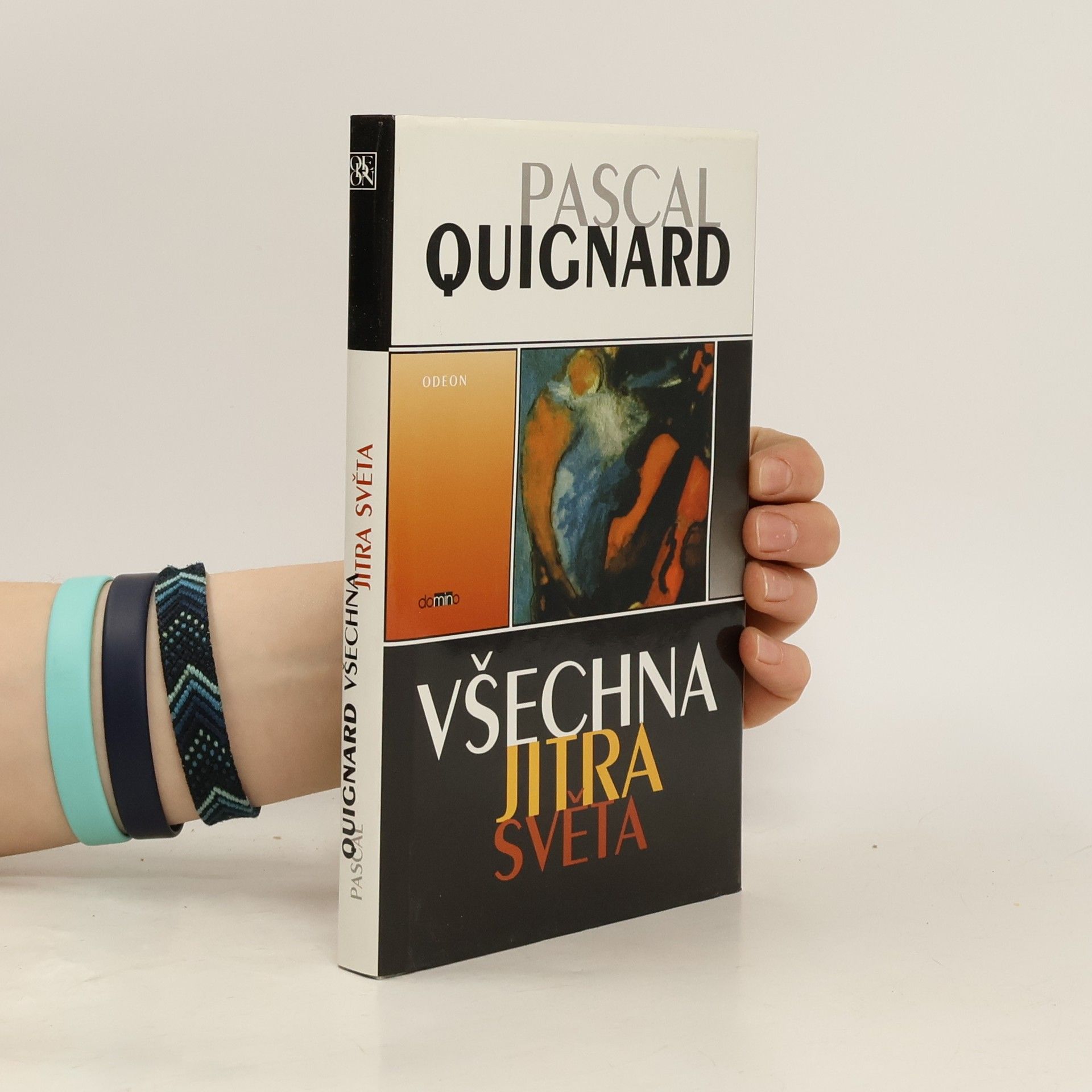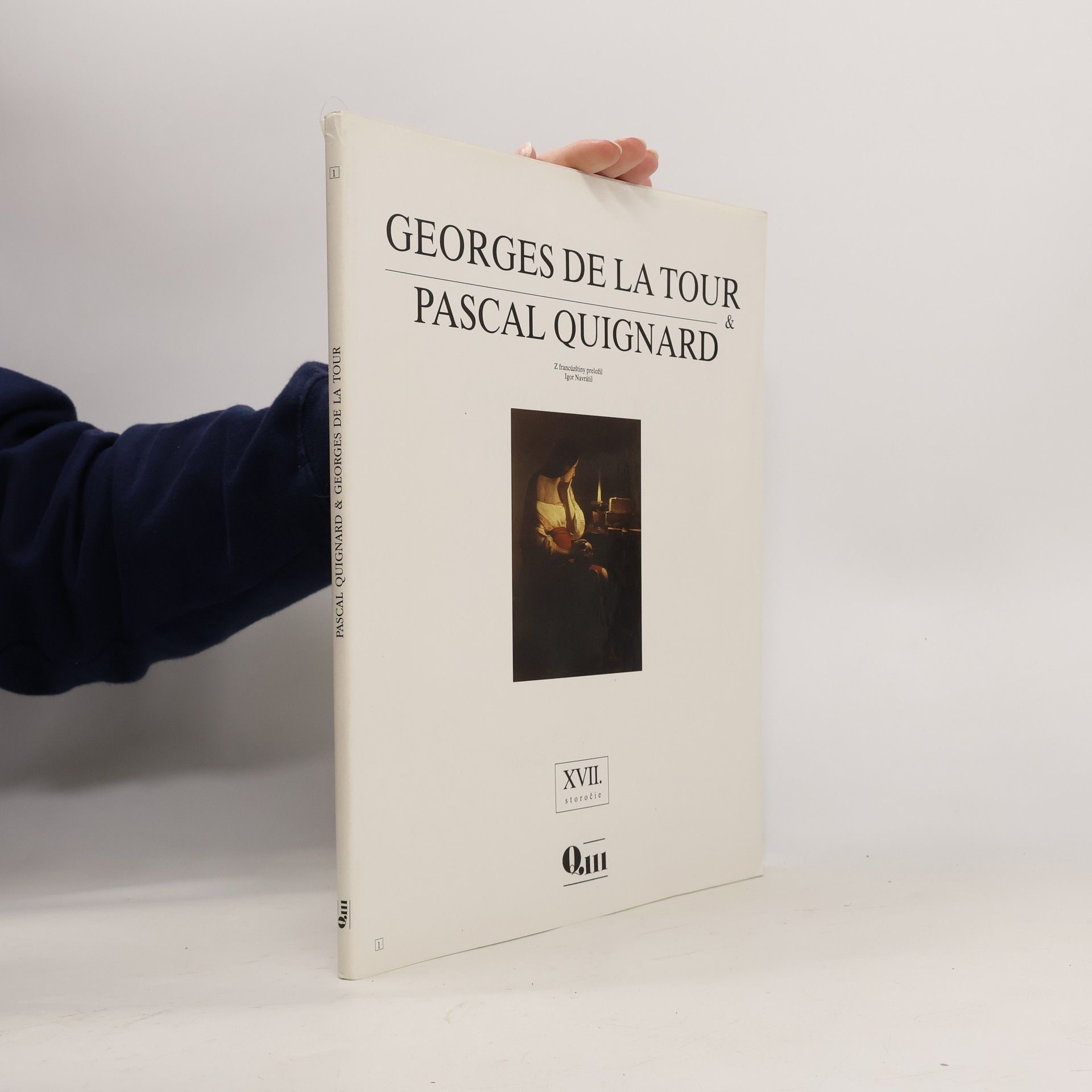Pascal Quignard Knihy
Pascal Quignard je francúzsky autor, ktorého dielo s jemnou eleganciou skúma hĺbky ľudskej existencie. Jeho písanie, ktoré sa často pohybuje na pomedzí románu, poézie a eseje, sa vyznačuje prenikavým pohľadom na témy ako pamäť, túžba a ticho. Quignardova práca skúma zložité vzťahy medzi históriou, umením a osobnou skúsenosťou, pričom využíva bohatý a poetický jazyk. Jeho tvorba nabáda čitateľov k zamysleniu sa nad pominuteľnosťou života a trvalým vplyvom umeleckého vyjadrenia.







Všechna jitra světa
- 102 stránok
- 4 hodiny čítania
Novela současného francouzského spisovatele se odehrává ve Francii 17. století a jejím leitmotivem je pochopení hudby a vztah k ní. Ve zfilmované podobě vytvořil hlavní roli Gérard Depardieu.
A bold and adventurous work of literature that explores the relationship between reading, writing, sex, and death. The first book in Pascal Quignard's Last Kingdom series, The Roving Shadows can be read as a long meditation on reading and writing that strives to situate these otherwise innocuous activities in a profound relationship to sex and death. Writing and reading can in fact be linked to our animal natures and artistic strivings, to primal forces and culturally persistent fascinations. With dexterity and inventiveness, Quignard weaves together historical anecdotes, folktales from the East and West, fragments of myth, and speculative historical reconstructions. The whole, written in a musical style not far removed from that of Couperin, whose piano composition Les Ombres errantes lends the book its title, coheres into a work of literature that reverberates in the psyche long after one has laid it down. The Roving Shadows is a rare and wondrous tour de force that cements Quignard's reputation in contemporary world literature. Available now in English, this boldly adventurous work will find a new and welcoming audience.
A Terrace in Rome
- 128 stránok
- 5 hodin čítania
Tajný život
- 428 stránok
- 15 hodin čítania
The Unsaddled
- 252 stránok
- 9 hodin čítania
A captivating and wide-ranging interpretation of accidental dismounting. In Pascal Quignard’s writing, philology hunts for wild game in a dark forest. The Unsaddled , which features horses as its central figure, is no exception. Taking off from puns, multifarious imagery, and metaphorical meanings—“to be baffled,” “to be thrown”—that the book’s title provides, Quignard focuses on life-changing moments. We meet George Sand (whose father died after being thrown from his horse), Saint Paul, Abelard, Agrippa d’Aubigné, and countless other writers, philosophers, theologians, or kings who fell off their horses—not to forget Jean-Jacques Rousseau, who was knocked over by a dog. Being “unsaddled” can also be associated, as Quignard shows in regard to Nietzsche, with an “overturning” of values. Scenes of war, hunting, “fleeing” or sexuality—“When lovers have a horse ride, they gallop in another world”—come before our eyes, each time from those unsettling vantage points that Quignard knows how to find. As ever, he ranges far and wide in his intense quest, taking examples from across human history, from the neolithic age to his own childhood memories of postwar Le Havre in northern France.
The Fount of Time
- 342 stránok
- 12 hodin čítania
“ Last Kingdom is a set of books that . . . is neither philosophical argumentation nor little disparate, scholarly essays, nor novelistic narrative; gradually, for me, all genres have fallen away.” So writes Pascal Quignard of his monumental book series, Last Kingdom . In the latest volume, The Fount of Time , he focuses on the paradoxically immediate presence in our lives of the deepest, most distant past. He explores this subject through a multitude of fragments of autobiography; curious folktales; literary snippets; historical anecdotes both classical and modern; ruminations on biology, archaeology, and linguistics. Using all of these forms, he confronts dimensions of human experience which, though customarily conveyed in legend, myth, and dreams, run somehow beneath the everyday world and yet are part of our most tangible reality. To enter Quignard’s horizonless time-space is to embrace a rich vision in which the totality of human history and culture is placed disconcertingly on a single footing. In The Fount of Time we are able to glimpse—whether through obscure cultural detail or unusual anecdote—“another world beneath the world.”
Abysses
- 296 stránok
- 11 hodin čítania
Prolific essayist, translator, and critic Pascal Quignard has described his Last Kingdom series as something unique. It consists, he says, "neither of philosophical argumentation, nor short learned essays, nor novelistic narration," but comes, rather, from a phase of his work in which the very concept of genre has been allowed to fall away, leaving an entirely modern, secular, and abnormal vision of the world. In Abysses, the newest addition to the series, Quignard brings us yet more of his troubling, questing characters--souls who are fascinated by what preceded and conceived them. He writes with a rich mix of anecdote and reflection, aphorism and quotation, offering enigmatic glimpses of the present, and confident, pointed borrowings from the past. But when he raids the murkier corners of the human record, he does so not as a historian but as an antiquarian. Quignard is most interested in the pursuit of those stories that repeat and echo across the seasons in their timelessness.
The Answer to Lord Chandos
- 49 stránok
- 2 hodiny čítania
Mysterious Solidarities
- 256 stránok
- 9 hodin čítania
When translator Claire Methuen travels back to her hometown of Dinard for a family wedding, she runs into her old piano teacher Madame Ladon. After befriending the ageing woman, Methuen begins to toy with the idea of a permanent return to live in Brittany. She becomes increasingly obsessed by her childhood sweetheart, Simon Quelen, who, now married and a father, still lives in a village further down the coast where he is the local pharmacist and mayor. Having moved into a farmhouse, she soon spends her days walking the heathland above the cliffs and spying on him as he sails in the bay. As she walks, she is at one with the land of her childhood and youth, "her skull emptying into the landscape." And when her younger brother Paul comes to join her there, the web of solidarities is further enriched. This is a tale of dramatic episodes, told through intermingling voices and the atmospherics of the austere Breton landscape. Ultimately, it is a story of obsessional love and of a parallel sibling bond that is equally strong.